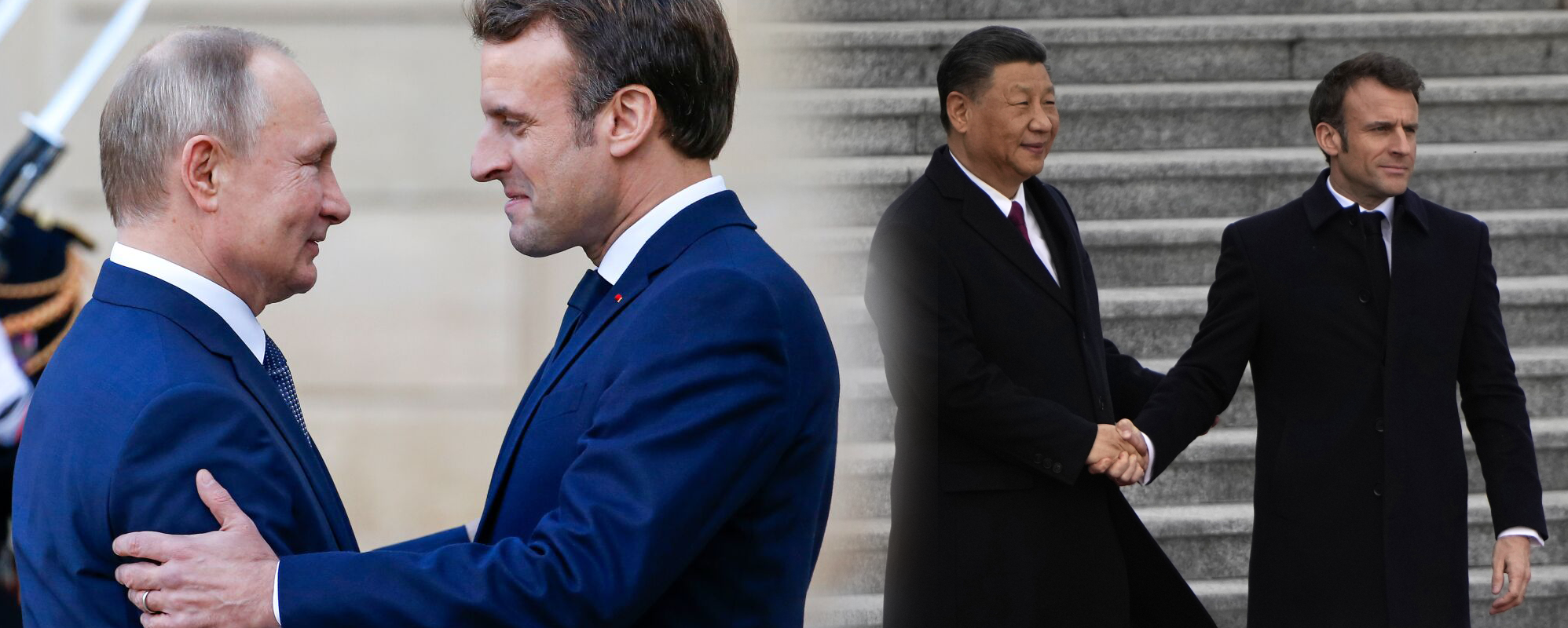Emmanuel Macron has made no secret of his intention to change the way that the European Union approaches foreign affairs. He has been vocal about his desire to see the EU take a more independent role in global politics, particularly in relation to the United States, Russia, and China. Macron believes that the EU should be a major player on the world stage, with the ability to shape events rather than simply react to them. Despite facing an intense popular uprising in France due to the implementation of a new pension law, Emmanuel Macron must also navigate the question of whether his diminished approval ratings will hinder his ability to significantly influence the EU. Can Macron still effectively address EU matters with so many domestic issues to manage?
Macron's push for a more independent EU foreign policy is not a new one. He has been advocating for this for some time and has taken steps to move the EU in this direction. For example, in 2019, he proposed the creation of a European army, which would allow the EU to better project its power and defend its interests.
One of the key drivers of Macron's push for a more independent EU foreign policy is the changing global landscape. The United States, long the dominant player in global politics, is becoming increasingly isolationist under the Trump administration. Meanwhile, China is rising rapidly, both economically and militarily, and is increasingly assertive on the global stage. Russia, too, is becoming more aggressive in its foreign policy, as evidenced by its annexation of Crimea and its involvement in the conflict in Syria.
In this context, Macron believes that the EU must step up and take a more active role in shaping global events. He has argued that the EU should not simply rely on the United States for protection, but should instead build up its own defense capabilities. This would allow the EU to be more self-sufficient, and less reliant on the whims of American foreign policy.
Macron's push for a more independent EU foreign policy has been met with some resistance, particularly from those who argue that the EU should maintain its close ties with the United States. Here, the most vocal countries are those from Eastern Europe, which, especially in the context of the conflict in Ukraine, have realized that their security vis-à-vis Russia is mainly provided by the United States. However, Macron believes that the EU must be prepared to stand on its own two feet, and that this will ultimately be better for both the EU and the United States.
One of the key challenges facing the EU in its push for a more independent foreign policy is the issue of unity. The EU is made up of 27 member states, each with its own interests and priorities. Getting all 27 member states to agree on a common approach to foreign affairs is no easy feat. However, Macron has been working to build consensus around his vision for a more independent EU foreign policy and has made progress in this regard.
Another challenge facing the EU is the issue of resources. Building up its own defense capabilities will require significant investment, at a time when many member states are facing economic challenges. However, Macron believes that this investment is necessary, and has argued that it will ultimately be more cost-effective than relying on the United States for protection.
Ultimately, Macron's push for a more independent EU foreign policy has the potential to reshape global politics. If the EU is able to build up its own defense capabilities and assert itself more strongly on the global stage, it could become a major player in shaping events. This could have significant implications for the United States, China, and Russia, and could ultimately lead to a more balanced global order.
But the extent to which Emmanuel Macron can successfully advance his European goals depends largely on domestic developments in France before the end of his presidency. It seems unlikely that Macron can prioritize his European objectives while also managing significant social unrest on the streets of major French cities like Paris and Marseille. Despite being in an opportune regional position to take the reins as leader of the EU following the departure of the UK and the absence of a dominant German chancellor like Angela Merkel, France has a history of turning on its leaders with fierce intensity. This presents a formidable obstacle for Macron's efforts to enact radical changes to the European Union's position in the global arena. Will he overcome this and become e key character in EU’s history? It remains to be seen.









